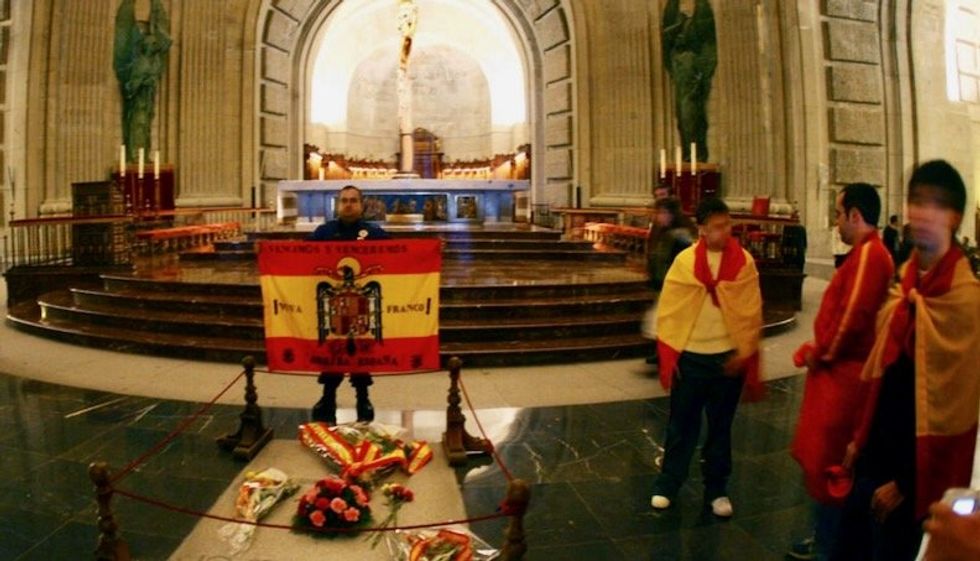Exhumation of Falange Party Founder’s Remains from Basilica
A Step Towards Democratic Memory and Legacy Tackling
Experts were on Monday exhuming the remains of the founder of Spain’s fascist Falange party from a grandiose basilica, where the body of former dictator Francisco Franco once lay, ahead of their removal to a low-key family grave. The operation comes six months after Spain passed the so-called democratic memory law which is designed to tackle the legacy of the 1936-39 civil war and the decades of dictatorship that followed.
Jose Antonio Primo de Rivera founded the Falange party in 1933, which became influential during the Spanish Civil War and the subsequent Franco dictatorship. The exhumation of his remains is seen as a symbolic gesture towards addressing Spain’s past and moving towards a more democratic future.
Reflecting on History Through Exhumation
The decision to exhumed Primo de Rivera’s remains from the grandiose basilica, where they had been interred alongside Franco’s, marks a significant moment in Spain’s efforts to come to terms with its turbulent past. The move represents a break from the glorification of figures associated with fascism and dictatorship, and a step towards acknowledging the suffering and injustices that occurred during that period.
By removing Primo de Rivera’s remains to a low-key family grave, the Spanish government is sending a message that it is committed to honoring the memory of all those who suffered under the regime, and to building a more inclusive and democratic society.
Implications for Spain and its People
For the people of Spain, the exhumation of Primo de Rivera’s remains carries both symbolic and practical significance. Symbolically, it represents a break with the past and a commitment to facing the darker chapters of history. Practically, it marks a tangible step towards implementing the democratic memory law and addressing the injustices of the past.
It is likely that the exhumation will spark debate and reflection among Spaniards about their country’s history and the legacy of fascism and dictatorship. It may also lead to a renewed focus on historical memory and the need to preserve the truth of what happened during those times.
Global Implications and Lessons
While the exhumation of Primo de Rivera’s remains is a specific event in Spanish history, it carries broader lessons and implications for the world. It serves as a reminder of the importance of confronting and reckoning with the legacies of authoritarianism and oppression, and of the need to build societies based on justice, democracy, and respect for human rights.
By taking this step towards addressing its past, Spain may inspire other countries to confront their own histories and to strive for a more just and inclusive future. The exhumation of Primo de Rivera’s remains is a testament to the power of memory, truth, and reconciliation in shaping a better world for future generations.
Conclusion
In conclusion, the exhumation of Jose Antonio Primo de Rivera’s remains from the grandiose basilica represents a significant moment in Spain’s journey towards addressing its past and building a more democratic future. By moving his remains to a low-key family grave, the Spanish government is taking a symbolic step towards honoring the memory of all those who suffered under fascism and dictatorship. The implications of this event extend beyond Spain, serving as a reminder of the importance of historical memory, truth, and reconciliation in shaping a more just and inclusive world.





